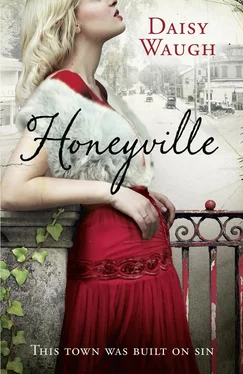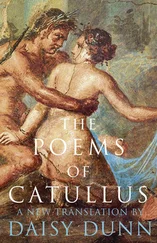There came another shot, this one from the handgun of the other detective. Lippiatt staggered back. Another shot, and he fell to the ground. And this I can never forget – the first detective stumbled forward and aimed his gun at Lippiatt as he lay helpless at his feet, and he shot him through the neck. Tore a hole through Lippiatt’s neck with the bullet. And then he shot him again, through the chest. That’s when the blood began to flow.
A couple of Union men appeared within moments, while we stood still, looking on, frozen with fear. They carried his body back into their Union lair, a thick trail of blood following them along the way. Lippiatt was dead. And I knew his name because last time he’d been in town, he paid me a visit at the Plum Street Parlour House. He was an Englishman. Or he had been English, once. Just as I had. It was the only reason I recalled him at all. Perhaps the only reason he chose me before the other girls. We didn’t talk about our Englishness in any case. Nor about anything else, come to that. Very taciturn, he was. Unsmiling. Smelled of the tanner – and my disinfectant soap. But they all smell of that. And he left without saying thank you. I can’t say I was sorry he was dead. But even so, it was a shock, to have been standing right there and seen it happen … and to remember (dimly) the feel of the man between my legs. And then there was Inez, collapsed on the floor at my feet. Poor darling.
I was shaken up. We all were. But Inez seemed to take the drama personally, as if it was her own mother who’d been slain before her eyes. She sat on the floor, her long blue skirt in a sober pool around her, and her little hat lopsided. She wouldn’t stand, no matter how Mr Carravalho and I, and finally Mrs Carravalho, tried to coax her. She simply sat and swayed, face as white as a ghost.
‘That poor man,’ she kept saying, with the tears rolling down her cheeks. ‘That poor, poor gentleman! One minute he was alive, right there beside me – he looked at me! Didn’t you see? Only a second before he looked at me … And now he is absolutely dead!’
Perhaps, while Inez is down there on the drugstore tiles, grieving the death of my old client, I should pause to explain something about our small town of Trinidad.
Forty years earlier it had been nothing: just a couple of shacks on the open prairie; a pit stop for settlers on the Santa Fe trail. Then came the ranchers and the cowboys, and then the prospectors. Elsewhere, they found iron and oil, silver and gold. Here, in Southern Colorado, buried deep in the rocks under that endless prairie, they found coal. It was the ranchers who settled in Trinidad. It was the coal men who made it rich. And in August 1913, our little town stood proud, a great, bustling place in the vast, flat, open prairie land. Trinidad boasted a beautiful new theatre, seating several thousand; an opera house as grand as its name suggests, a score of different churches and a splendid synagogue; there were numerous schools, two impressive department stores, a large stone library, and a tram that ran to the city from the company-owned mining settlements, or ‘company towns’ in the hills. There were hotels and saloons and dancing halls, and pawn shops and drugstores and stores selling knick-knacks of every kind, and a large brick factory, and a brewing factory and – because of all that – but mostly because of the coal, there were people in Trinidad from just about every country in the world.
In 1913, Trinidad was the only town in Colorado that tolerated my trade. Consequently, there existed on the west side of Trinidad – from that handsome new theatre, and on and out – a district a quarter the size of the entire town which was dedicated to gentlemen’s pleasure: saloons (uncountable) and – according to the city censor – at least fifteen established brothels. Which number, by the way, was the tip of the iceberg. It didn’t take into account the vast quantity of independent girls – the ‘crib’ girls, who operated from small single rooms, and who worked and lived together in shifts; nor the dance-hall girls, nor the pathetic ‘sign-posters’, who worked not in rooms but wherever they could: in dark corners, shoved up against walls behind the saloons.
For most of us (not perhaps the sign-posters) Trinidad was a good place to be a whore, and a good place to find one. Snatchville, they used to call it. Ha. And the punters came from far and wide. Prostitution wasn’t simply legal in ol’ Snatchville, it was an integral part of the city. There was a Madams’ Association – a hookers’ mutual society, if you like – so rich and influential it funded an extension of the trolley line into our red-light district, and the building of a trolley bridge. ‘The Madams’ Bridge’, folk called it: built by the whores, for the whores, although really the whole town benefited. It meant the men travelling down from the camps could be transported directly into our district, without getting lost along the way, or disturbing the peace of the better neighbourhoods. The Madams’ Association provided medical care and protection to the girls, too, so long as they were attached to a brothel. And a recuperation house, not a mile out of the city, where we could retire for a week or so, if we needed a break.
Trinidad was wealthy: cosmopolitan in its own provincial fashion, conservative and yet radical. It was new, and crazy, and busting with life. But for all that, it was only a small town.
From its centre, where North Commercial crossed Main (only a few yards from where Lippiatt was shot), the entire city was never more than a ten-minute walk away: the library, where Inez worked, the jail, the city newspaper, the City Hall. Everything was clustered around the same twenty or so blocks. From the red-light district in the west, with its saloons and dancehalls, to the ladies’ luncheon clubs, church halls, and elegant tearooms in the east, the distance was hardly more than a few miles.
The ladies of Trinidad spent their dollars in the same stores. We attended the same movie theatres. We washed the same prairie dust from our hands and clothes. And yet, it was as if we lived in quite separate realities; as if we couldn’t see one another. Only the men travelled freely between our two worlds.
Inez and I, living side by side in a small, dusty town in the middle of the Colorado prairie might, our entire lives, have brushed past one another on the sidewalk, at the grocery store, the drugstore, the library, the doctor’s waiting room, at our famous department store – and never once exchanged a glance or a word. Inez and I were as shocked as each other by the evening that followed Lippiatt’s death.
… I suppose, at this point I should also explain something about myself, too? I don’t much want to, and that’s the truth. But how in the world (the question begs) did an educated English woman, thirty-seven years old and the daughter of two Christian missionaries, find herself divorced, childless and working in an upmarket Colorado brothel? How indeed.
Well, because we all find ourselves somewhere, I guess.
It’s all anyone needs to know. There, but for the grace of God … This isn’t a story about me, in any case. It’s a story about Inez and Trinidad, and the war that came to Snatchville and tore us all apart.
So there Inez sat, or slumped, on the drugstore tiles. And there were Mr and Mrs Carravalho hovering around her, polite but, I sensed, with a hint of impatience. Outside, there was panic in the voices now, and anger too. The Carravalhos wanted to close up and get home as quickly as possible. But Inez, wrapped in her own horror, was oblivious to their concerns. I might have gone on my way, come back to the shop another day. I had plenty else to do, and I was meant to be working that evening. But Lippiatt’s blood was still slick on the street outside, and I didn’t much relish the idea of venturing into the angry crowd myself. Not yet.
Читать дальше












